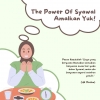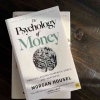Find Time to Move: Daily exercise has across-the-board benefits for health, and the changes it initiates in energy use and body temperature can promote solid sleep. Most experts advise against intense exercise close to bedtime because it may hinder your body's ability to effectively settle down before sleep.
Monitor Your Caffeine Intake: Caffeinated drinks, including coffee, tea, and sodas, are among the most popular beverages in the world. Some people are tempted to use the jolt of energy from caffeine to try to overcome daytime sleepiness, but that approach isn't sustainable and can cause long-term sleep deprivation. To avoid this, keep an eye on your caffeine intake and avoid it later in the day when it can be a barrier to falling sleep.
Be Mindful of Alcohol: Alcohol can induce drowsiness, so some people are keen on a nightcap before bed. Unfortunately, alcohol affects the brain in ways that can lower sleep quality, and for that reason, it's best to avoid alcohol in the lead-up to bedtime.
Don't Eat Too Late: It can be harder to fall asleep if your body is still digesting a big dinner. To keep food-based sleep disruptions to a minimum, try to avoid late dinners and minimize especially fatty or spicy foods. If you need an evening snack, opt for something light and healthy.
Don't Smoke: Exposure to smoke, including secondhand smoke, has been associated with a range of sleeping problems including difficulty falling asleep and fragmented sleep.
Reserve Your Bed for Sleep and Sex Only: If you have a comfortable bed, you may be tempted to hang out there while doing all kinds of activities, but this can actually cause problems at bedtime. You want a strong mental association between your bed and sleep, so try to keep activities in your bed limited strictly to sleep and sex.
If You Can't Fall Asleep
Whether it's when you first get into bed or after waking up in the middle of the night, you may find it hard to drift off to sleep. These tips help explain what to do when you can't sleep:
Try Relaxation Techniques: Don't focus on trying to fall asleep; instead, focus on just trying to relax. Controlled breathing, mindfulness meditation, progressive muscle relaxation, and guided imagery are examples of relaxation methods that can help ease you into sleep.
Don't Stew in Bed: You want to avoid a connection in your mind between your bed and frustration from sleeplessness. This means that if you've spent around 20 minutes in bed without being able to fall asleep, get out of bed and do something relaxing in low light. Avoid checking the time during this time. Try to get your mind off of sleep for at least a few minutes before returning to bed.
Experiment With Different Methods: Sleeping problems can be complex and what works for one person may not work for someone else. As a result, it makes sense to try different approaches to see what works for you. Just remember that it can take some time for new methods to take effect, so give your changes time to kick in before assuming that they aren't working for you.







